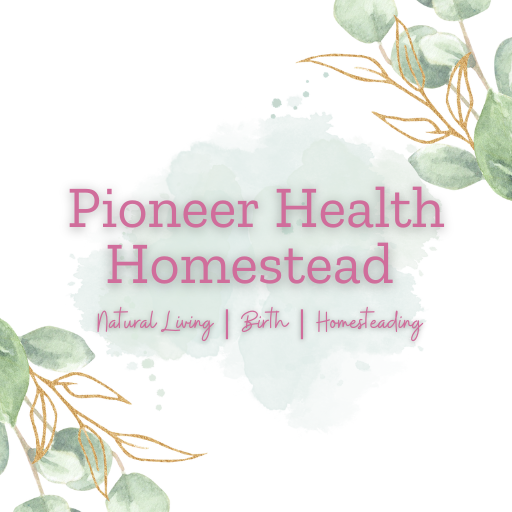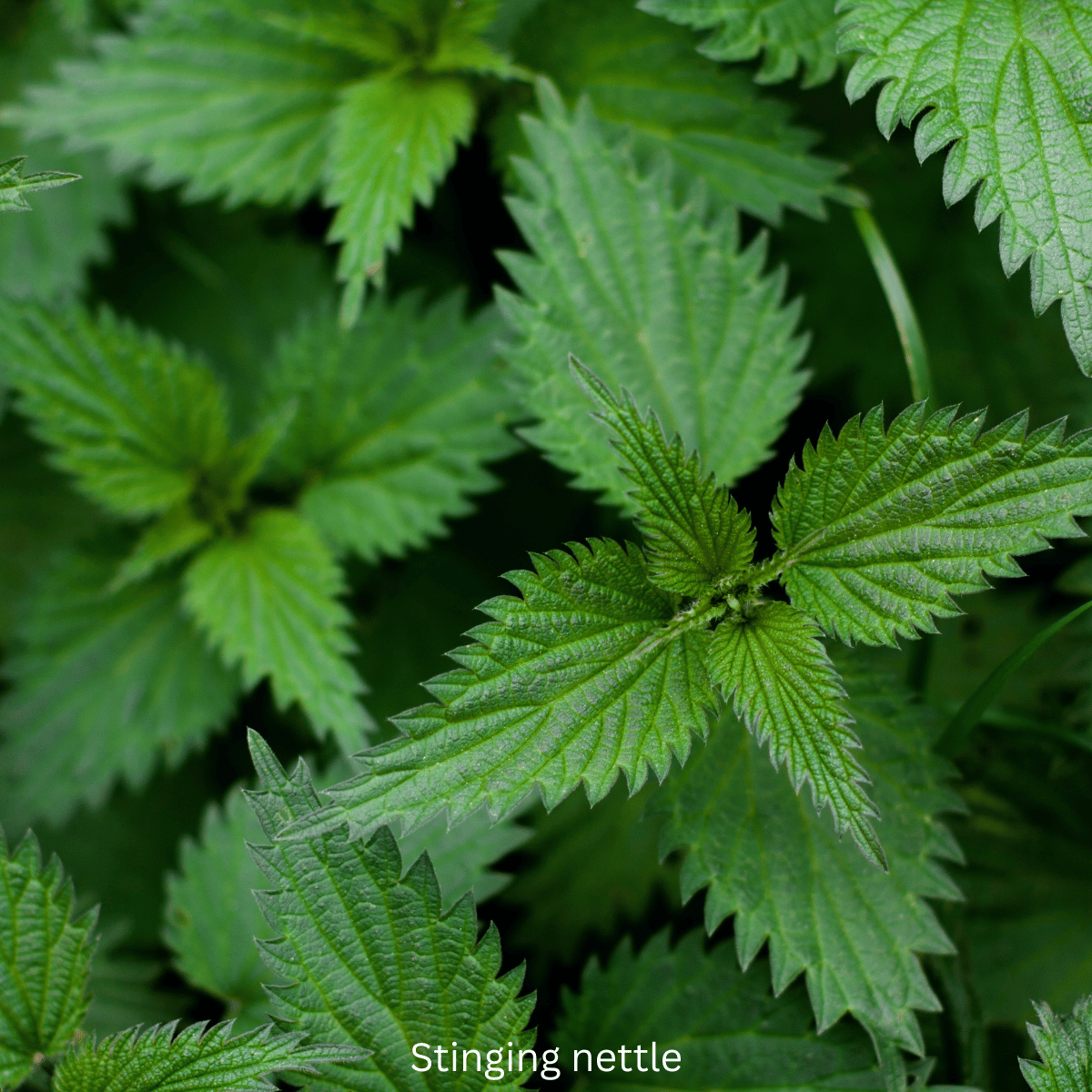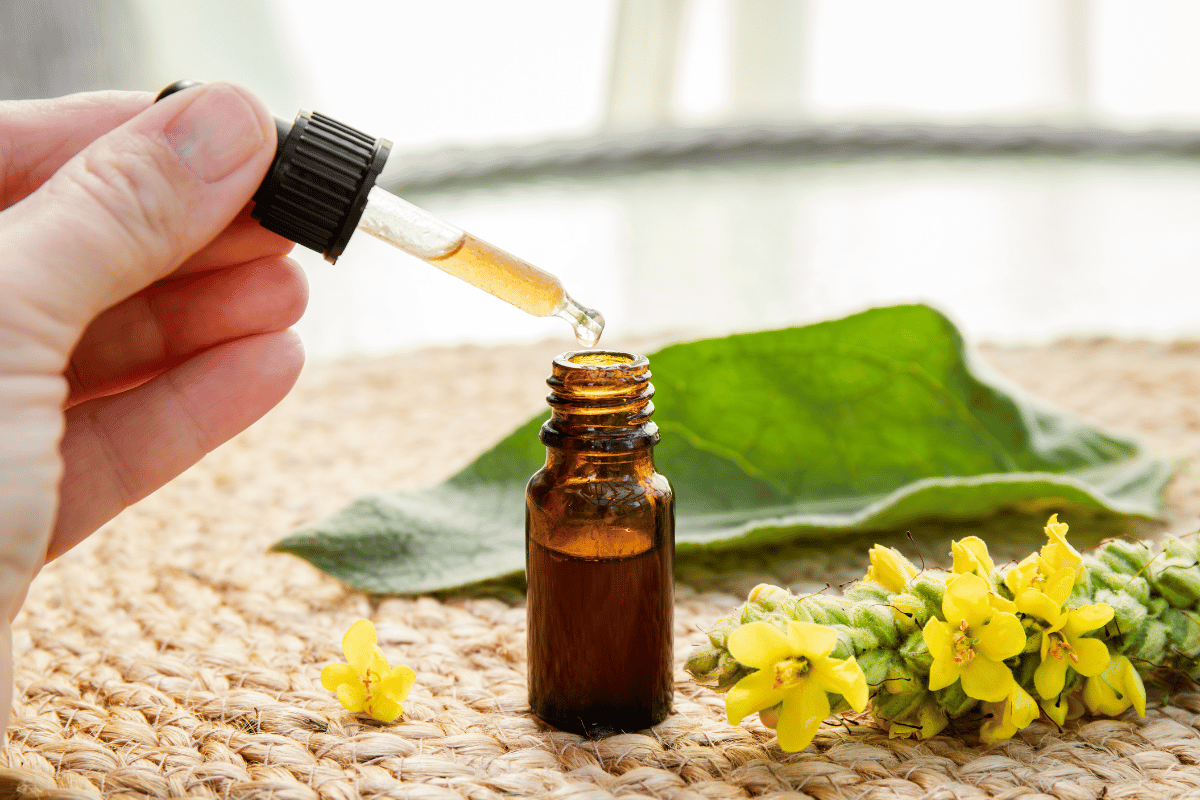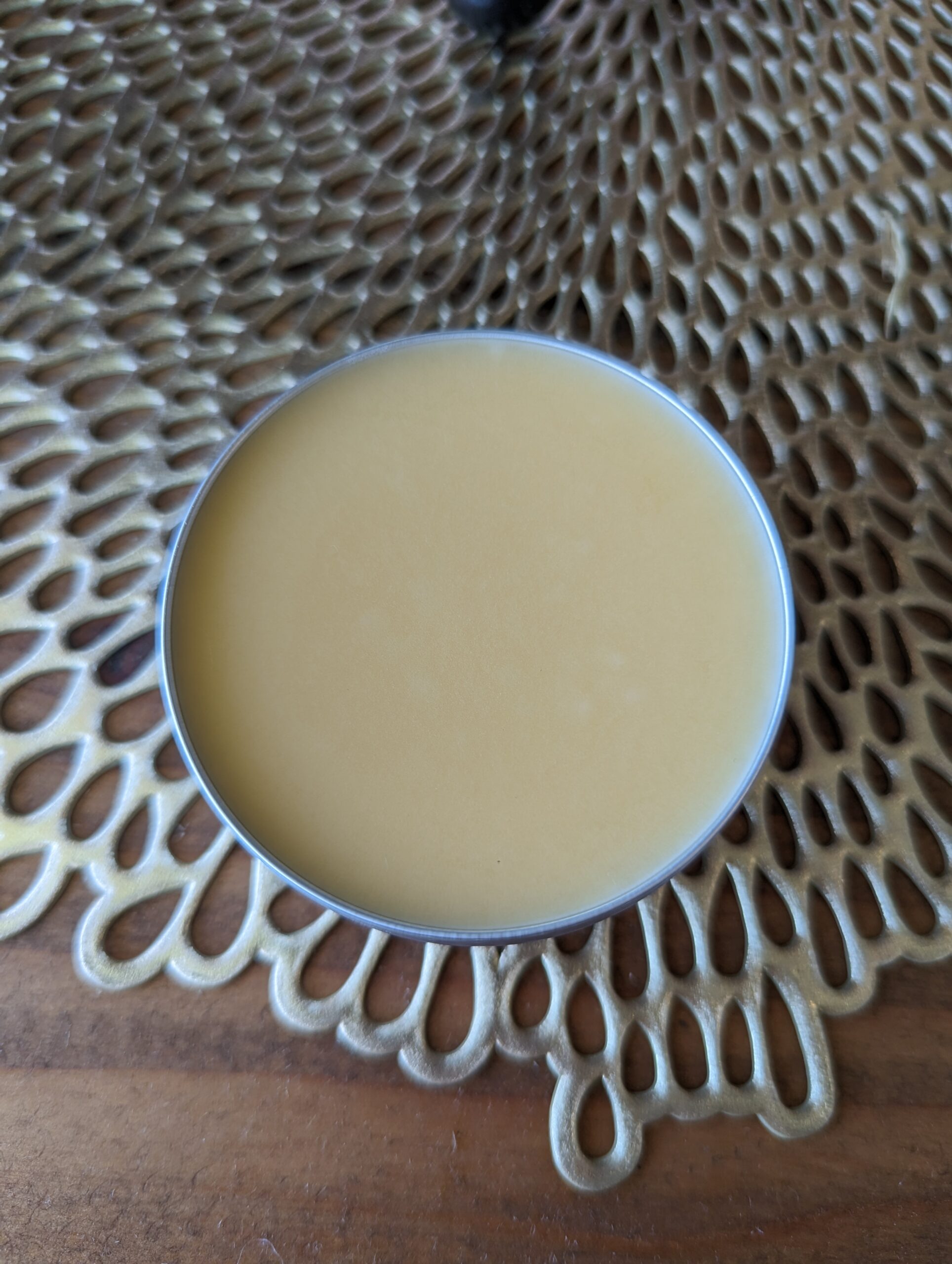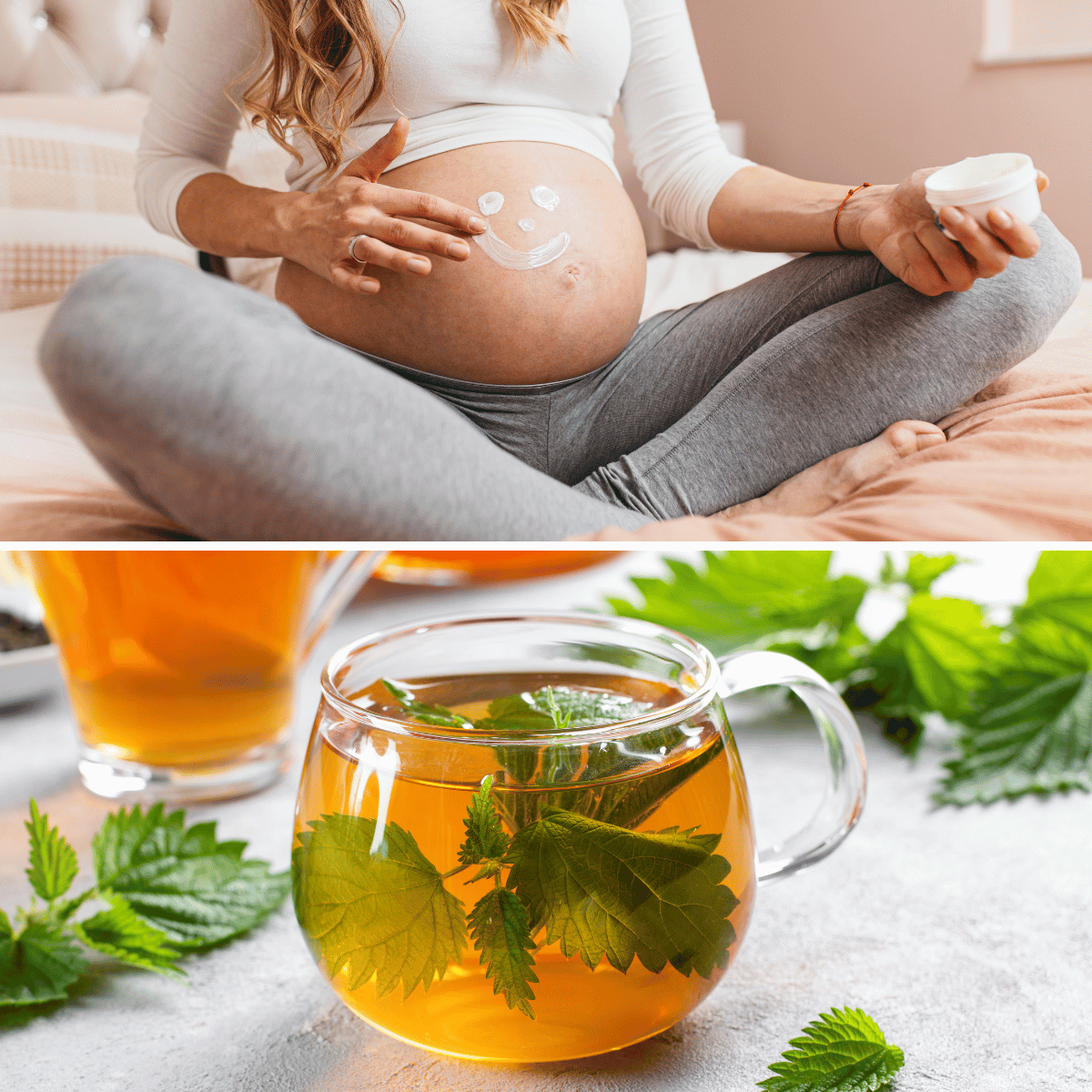Benefits of Homemade Soap: Reasons for Natural and Handmade
Introduction to the Benefits of Homemade Soap
The benefits of homemade soap are gaining attention as people prioritize natural products in personal care routines.
Unlike commercial soaps, homemade soap offers natural, skin-friendly alternatives made with high-quality ingredients. It’s a better choice for health-conscious individuals.
This article explores the many benefits of handmade soap and why it outshines mass-produced soaps in quality and care.
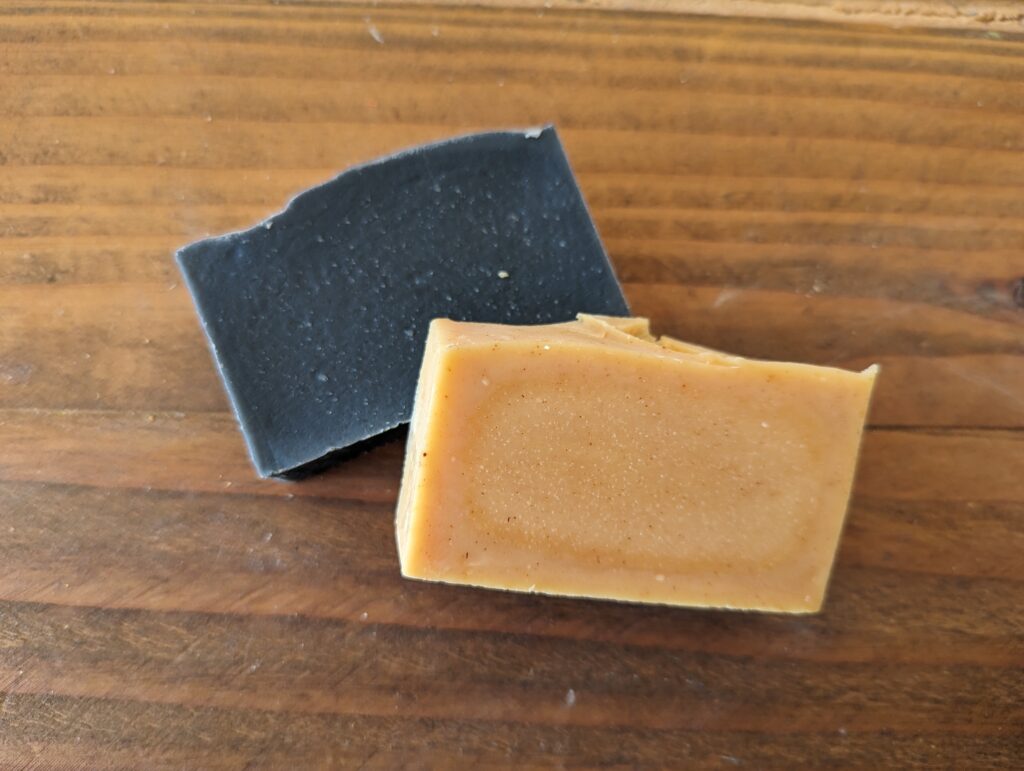
Understanding Homemade Soap
What is Homemade Soap?
Homemade soap is a natural handmade soap crafted with nourishing, eco-friendly ingredients, offering a healthier alternative to chemical-laden commercial soaps.
It is typically made with organic ingredients such as plant oils—including coconut oil, shea butter, castor oil, and cocoa butter. These oils are rich in moisturizing and skin-loving properties, helping to protect the skin and maintain its natural softness.
When I make my handmade soaps, I prioritize sourcing the most natural ingredients possible. I continually research the best practices and safest methods to ensure my products are suitable for both my family and my customers.
However, it’s important to note that not all homemade soaps are of the same quality or toxicity level. Some soap makers include harmful chemicals like polysorbate 80 and artificial fragrances in their recipes. When buying homemade natural soaps, always check the ingredient list and, when possible, learn about the sourcing practices.
To create handmade soaps, artisans often use methods like the cold process method or the hot process soap method. The cold process method retains natural glycerin, making the soap highly hydrating. Meanwhile, the hot process soap method produces durable, long-lasting soap bars.
How is Homemade Soap Different from Commercial Soap?
The benefits of homemade soap become even more apparent when compared to commercial soaps produced by large companies. Mass-produced soaps often prioritize cost savings, leading to the inclusion of harsh formulas.
Store-bought soap frequently contains synthetic ingredients such as artificial fragrances, synthetic detergents, and chemicals like lauryl sulfate. These additives can strip the skin of its natural oils, resulting in dryness, irritation, or even allergic reactions.
In contrast, handmade soaps are crafted with high-quality ingredients that are free from harsh chemicals and synthetic additives. They are designed to nourish and hydrate the skin, making them ideal for all skin types, including sensitive skin.
This emphasis on natural materials ensures that handmade soaps are a safer and healthier option. Especially for individuals with skin conditions or sensitivities. Choosing homemade soap means choosing a product that supports both your skin and overall well-being.
Save for Later!
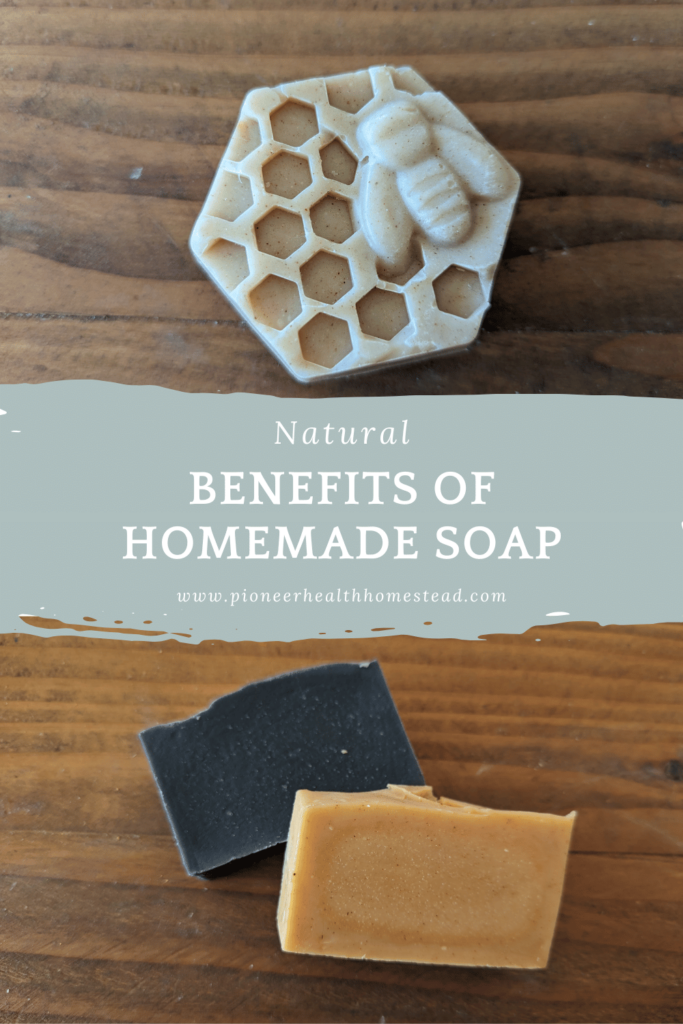
Benefits of Homemade Soap
Health Benefits
The benefits of homemade soap are especially evident in its gentle care for the skin. Natural handmade soap is ideal for sensitive skin and versatile enough for all skin types. It offers a safer alternative to chemical-laden store-bought soaps.
Unlike commercial soaps that often include synthetic fragrances and toxic chemicals, homemade soap minimizes the risk of skin irritation and allergic reactions. These harsh ingredients can strip the skin of its protective oils, leaving it dry and prone to discomfort. In contrast, homemade natural soap preserves the skin’s natural oils. This provides hydration and relief for dry skin and conditions like eczema.
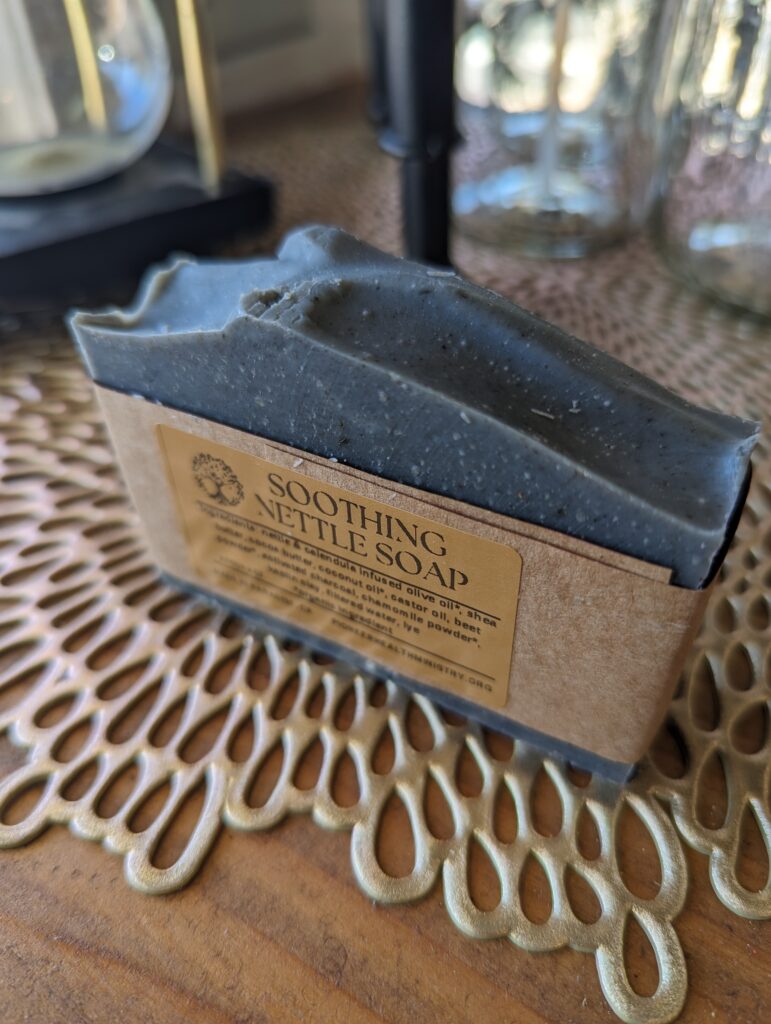
Using handmade soaps can also help maintain the skin’s natural balance, keeping it nourished and less prone to breakouts. With every wash, you’re treating your skin with the care it deserves.
Environmental Benefits
Choosing handmade soaps doesn’t just benefit your skin; it’s also a win for the planet. Homemade soap production relies on small-scale, often eco-conscious methods that create a significantly lower carbon footprint compared to mass-produced soaps.
Artisans prioritize the use of natural materials, such as plant oils, which are biodegradable and free of harmful environmental pollutants. Additionally, homemade natural soaps are crafted without animal testing, reflecting ethical and sustainable practices.
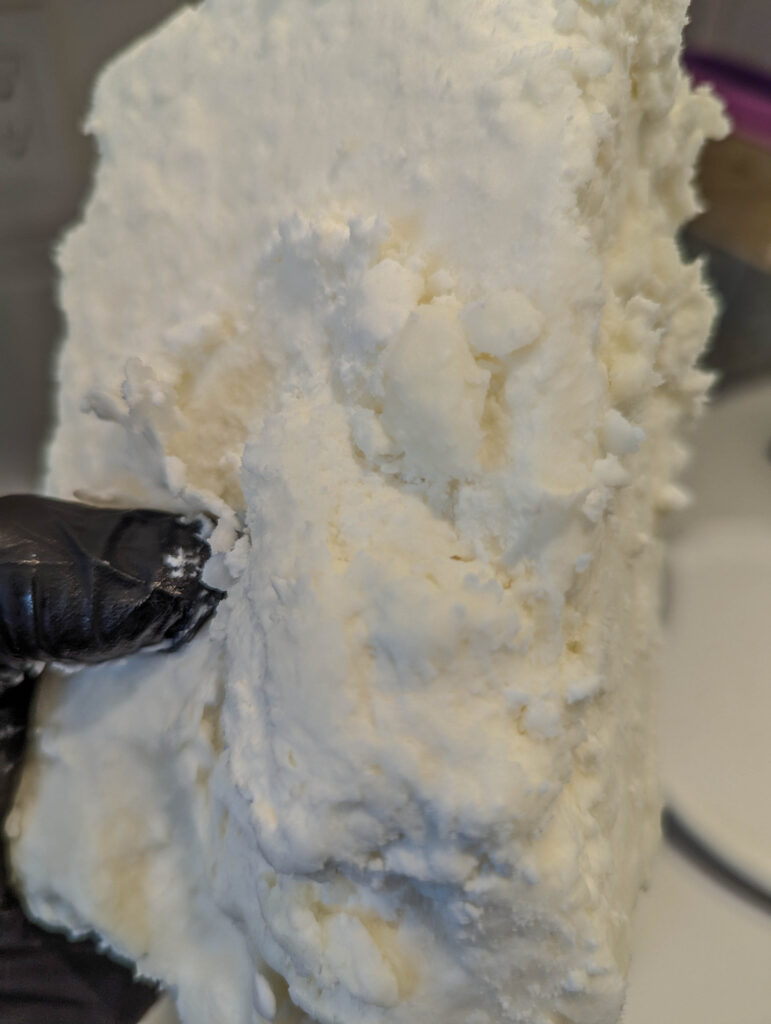
Purchasing from local businesses and small soap makers further amplifies these benefits. Supporting these artisans encourages sustainability, strengthens local economies, and reduces the environmental impact associated with transporting mass-produced soaps.
Cosmetic and Beauty Benefits
The cosmetic benefits of homemade soap go beyond just cleansing. These soaps are infused with natural additives. These include pure essential oils, which offer therapeutic aromas and gentle care for the skin.
High-quality ingredients like extra virgin olive oil, cocoa butter, and plant oils provide rich moisturizing properties. These leave your skin soft, smooth, and radiant. The natural fats and oils used in homemade soaps replenish moisture and encourage healthy skin.
Unlike store-bought soaps that often contain synthetic chemicals and drying agents, natural soap bars avoid harmful substances. This makes them perfect for maintaining hydration and promoting a youthful glow. With homemade soap, you’re not just cleaning your skin—you’re nourishing it with every use.
Choosing homemade natural soaps is a simple yet impactful way to enhance your personal care routine. While supporting ethical, environmental, and beauty-focused values.
Drawbacks of Commercial Soaps
Reliance on Synthetic Chemicals and Artificial Fragrances
One major drawback of commercial soaps is their reliance on synthetic chemicals and artificial fragrances. These ingredients are often used to lower production costs while enhancing scents and shelf life. However, they can harm the skin and overall health.
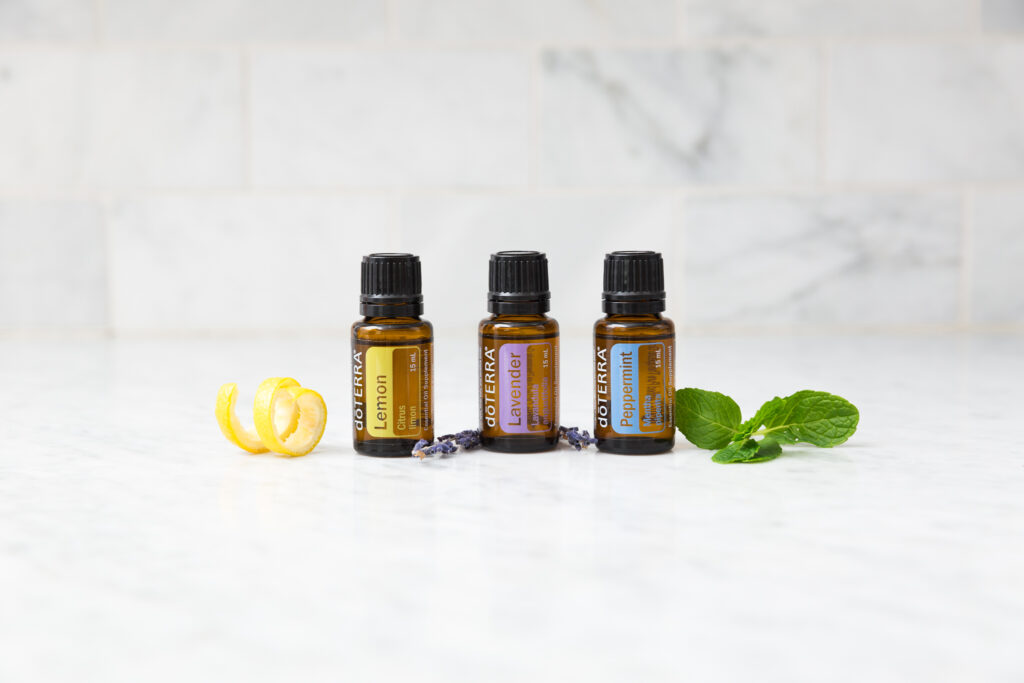
Synthetic additives like lauryl sulfate and parabens are common in mass-produced soaps. These harsh substances may provide a rich lather but can strip the skin of its natural protective barrier. This would leave it vulnerable to dryness and irritation.
Additionally, the artificial fragrances used in these products are often made from a mix of undisclosed chemicals, some of which may trigger allergies or disrupt hormones.
Stripping Skin of Natural Oils
Store-bought soaps are notorious for stripping the skin of its natural oils. Many contain synthetic detergents that are overly harsh and designed for aggressive cleaning rather than gentle care.
Without its natural oils, the skin becomes dry, tight, and more prone to conditions like eczema and flakiness. This effect can be particularly harmful to sensitive skin and individuals with preexisting skin conditions.
In contrast, homemade natural soaps retain the skin’s moisture, offering a soothing alternative.
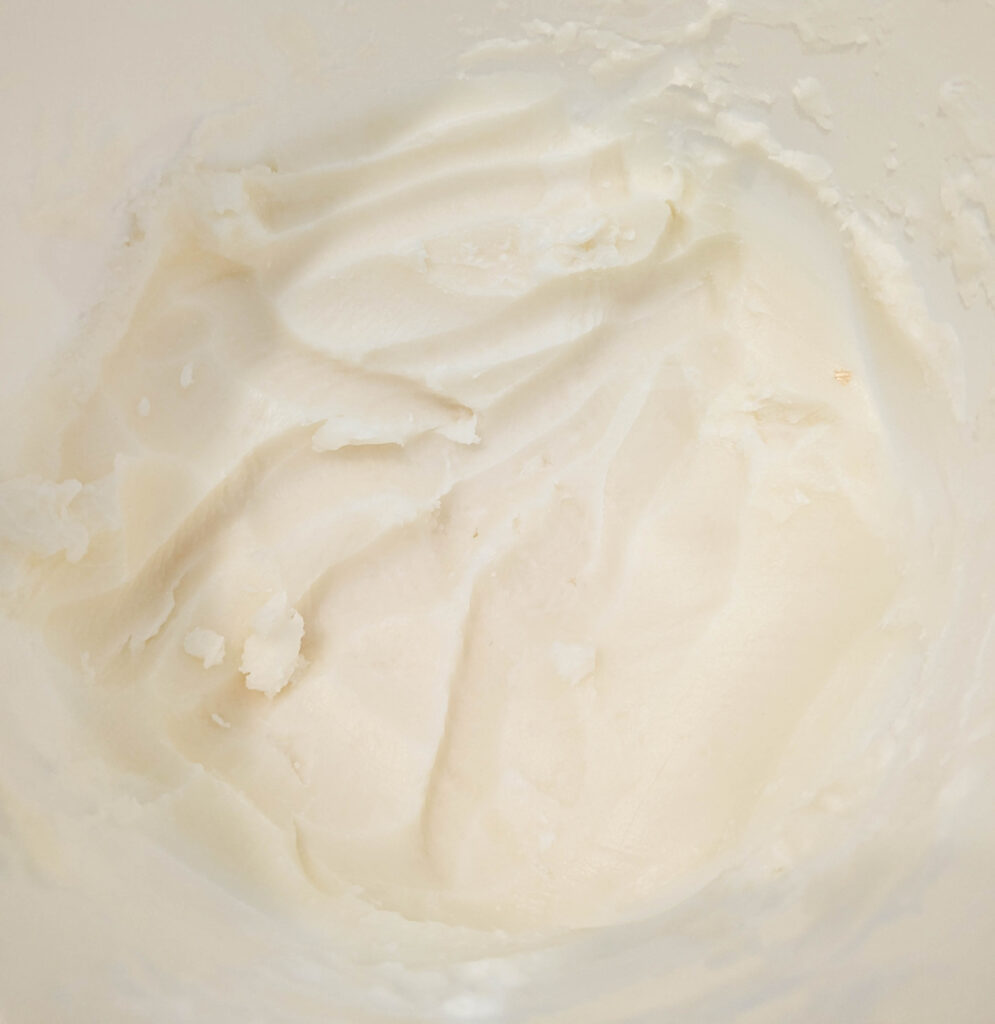
Use of Animal Fats and Industrial Additives
Many commercial soap companies use animal fats—often referred to as tallow—in their production. While this ingredient is cost-effective, it doesn’t offer the same nourishing benefits as plant oils like coconut oil or extra virgin olive oil.
Other industrial additives found in commercial products include hardening agents and preservatives designed for long shelf life rather than skin health. These substances can clog pores, irritate the skin, and contribute to environmental pollution.
By avoiding mass-produced soaps and choosing natural handmade soaps, you can protect your skin from these harmful substances while supporting ethical and sustainable practices.
How Homemade Soap Supports Sustainability
Ethical Practices and Avoiding Harmful Industrial Practices
One of the key benefits of homemade soap is its ethical approach to production. Unlike mass-produced soaps, which often rely on animal testing and harmful industrial practices, handmade soaps are created with a focus on compassion for both the environment and animals.
Many small soap makers prioritize cruelty-free methods, ensuring that their products are never tested on animals. This commitment to ethical practices also extends to sourcing ingredients responsibly, ensuring that no harmful chemicals or unethical practices are used in the process. By choosing homemade soap, you are supporting businesses that align with these values, helping to create a more ethical and sustainable world.
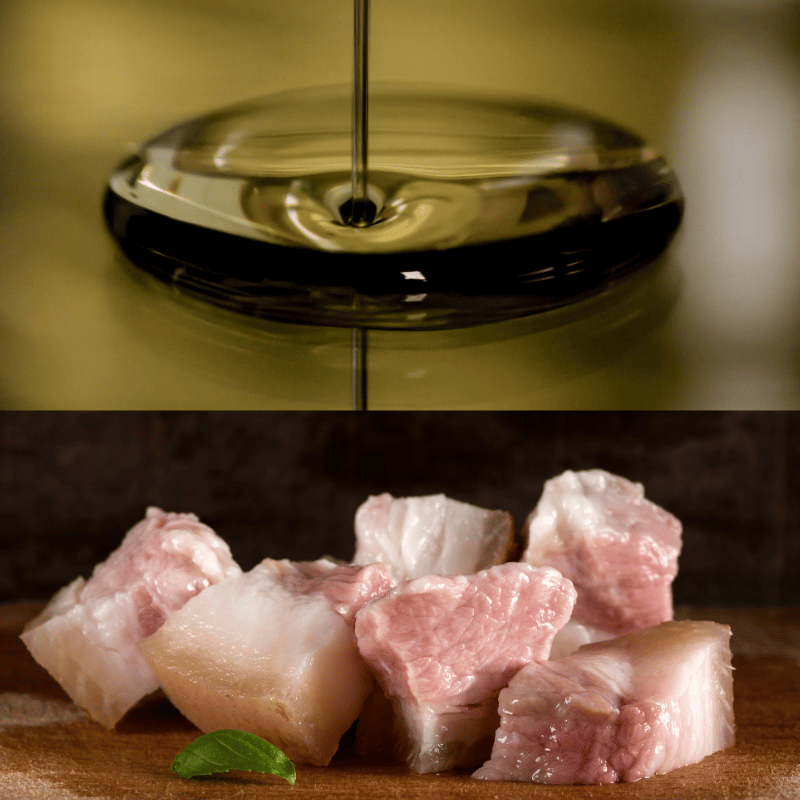
Choosing Products That Align with Sustainability
Natural soap bars made with organic ingredients offer a significant environmental advantage. These soaps are typically crafted with plant-based oils like coconut oil, olive oil, and shea butter, which are renewable resources, unlike some animal-derived ingredients commonly found in commercial soaps.
In addition to being eco-friendly, these soaps are biodegradable, meaning they break down naturally without leaving harmful residues in the environment. By purchasing handmade soaps made from natural materials, you’re making a conscious choice to support sustainability and reduce your environmental footprint.
The Positive Aspect of Reduced Shelf Life
Another surprising benefit of homemade soap is its reduced shelf life compared to commercial products. While store-bought soaps are often loaded with preservatives to extend their shelf life, handmade natural soaps are free from these additives.
The shorter shelf life of natural soap bars is actually a positive sign of their purity. Without the use of preservatives and artificial chemicals, these soaps offer a more wholesome and chemical-free alternative. Their quicker expiration is a testament to the absence of synthetic additives and the use of only organic ingredients, making them a healthier choice for both your skin and the planet.
By supporting small soap makers who prioritize sustainability, you’re contributing to a healthier planet while enjoying the purest, most nourishing products for your skin.
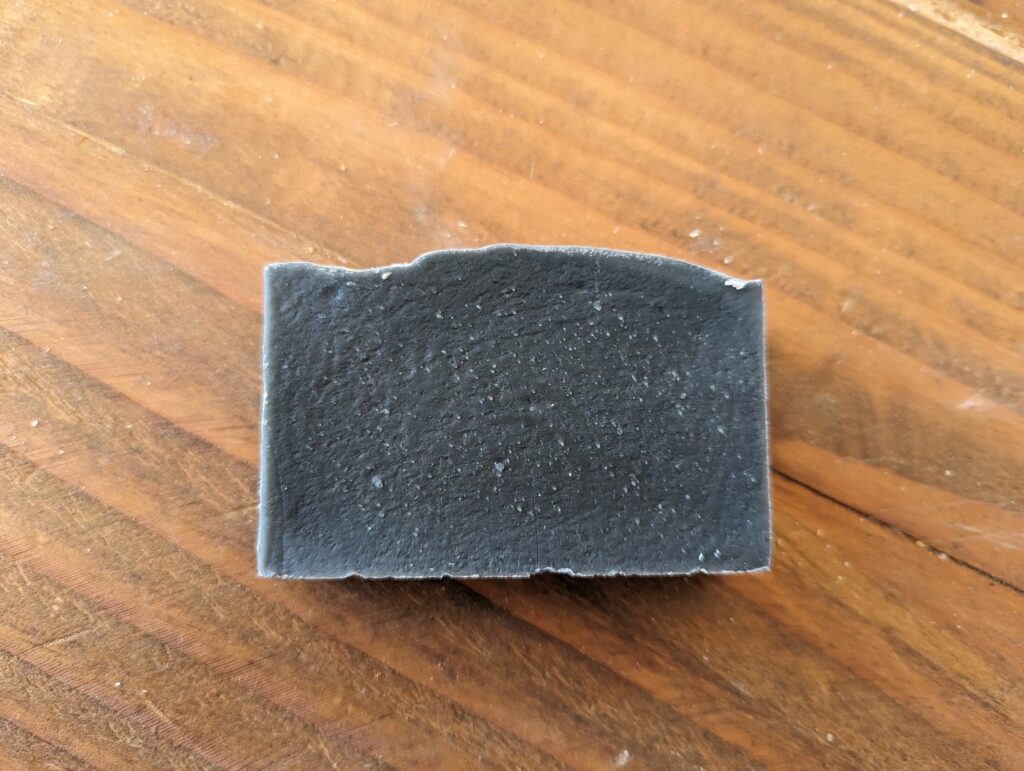
The Global Appeal of Handmade Soaps
Global Appreciation for Handmade Natural Soaps
Handmade soaps are gaining recognition worldwide for their natural ingredients, sustainability, and connection to local cultures. From the sunny British Virgin Islands to the remote regions of South Sudan and the tropical paradise of French Polynesia, handmade soaps are celebrated for their versatility and rich cultural significance.
In the British Virgin Islands, soap makers craft their products using local resources like coconut oil and aloe vera, both known for their hydrating and soothing properties. These handmade soaps not only nourish the skin but also reflect the region’s commitment to sustainability and preserving local traditions.
In South Sudan, handmade soaps made from plant oils like shea nut butter are popular due to their ability to treat dry and damaged skin, which is a common issue in arid climates. The use of natural, locally sourced ingredients supports the region’s eco-conscious trends and provides an affordable, effective solution to skin care.
Meanwhile, in French Polynesia, tiare flowers and monoi oil are often used in handmade soaps, reflecting the island’s cultural heritage and deep respect for nature. The combination of tropical flowers and plant oils creates luxurious soaps with rich, exotic scents, while also promoting skin health and environmental stewardship.
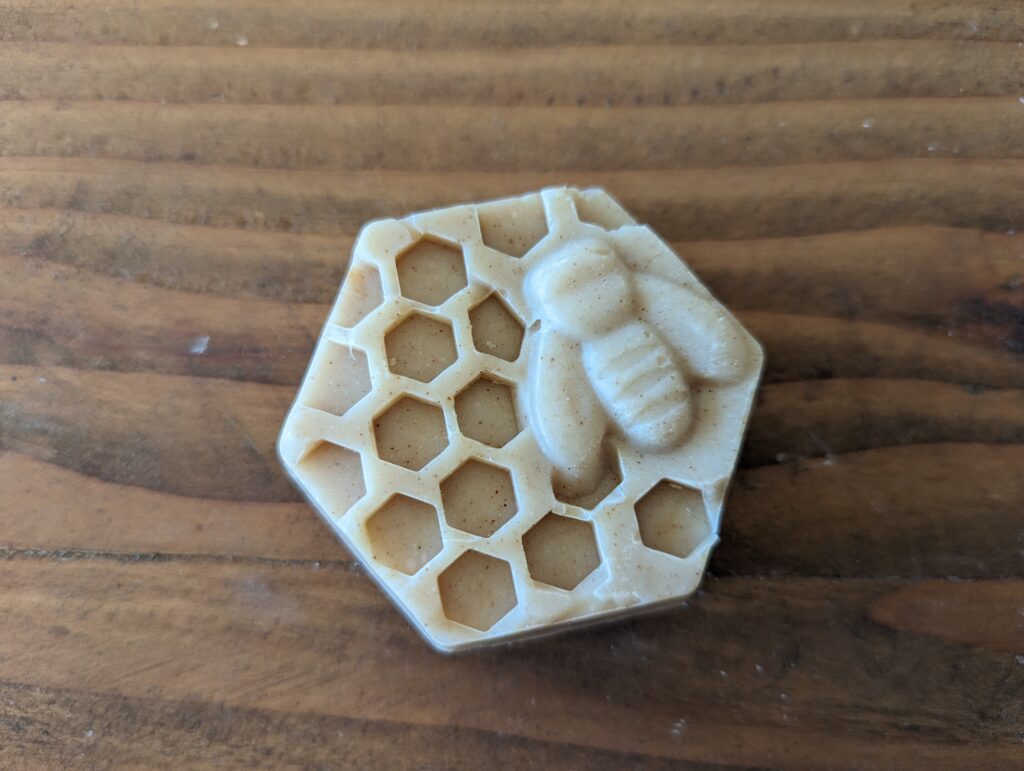
Cultural Traditions and Modern Eco-Conscious Trends
The global appeal of handmade soap blends cultural traditions with modern eco-conscious trends. In many parts of the world, handcrafted soaps are a nod to ancient practices passed down through generations. Regions like French Polynesia and the British Virgin Islands, soap-making traditions were born out of necessity, using native plants and natural resources to create gentle yet effective skincare.
In today’s eco-conscious world, the demand for handmade soaps is growing as more people embrace sustainability, health-conscious choices, and ethical consumerism. Natural soaps made with organic ingredients and free from harsh chemicals are now seen not only as a luxury but as an essential part of personal care.
The rise of natural products aligns perfectly with modern values, as consumers seek products that are better for their skin, the environment, and local economies. By embracing handmade soaps from around the world, we can celebrate both cultural heritage and global efforts toward more sustainable, mindful living.
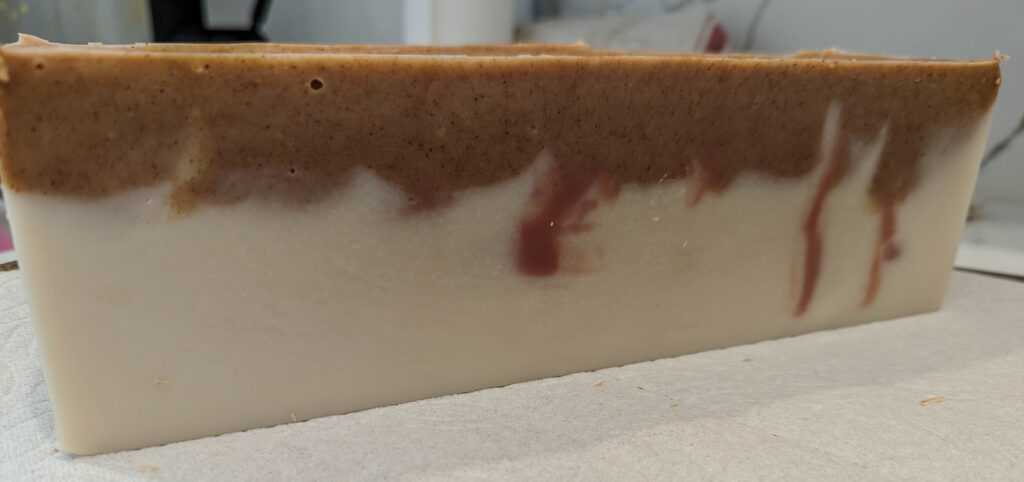
Choosing the Right Soap for You
When it comes to choosing the right soap for your personal care needs, there are several factors to consider. One of the key things to look for is moisturizing properties. Natural soap bars made with plant oils like coconut oil, shea butter, and cocoa butter are rich in fatty acids that help hydrate and nourish the skin. These ingredients work in harmony to prevent dryness, making them ideal for those with dry skin or sensitive skin.
To find the best soap for your skin type, consider the ingredients used. For example, if you have oily skin, soaps made with tea tree oil or charcoal may be beneficial, as these ingredients help balance excess oil production. For sensitive skin or those prone to skin irritation, opt for soaps with calming ingredients like lavender essential oil or chamomile, which have anti-inflammatory and soothing properties.
The use of essential oils is another factor to consider when selecting the right soap. Pure essential oils, such as peppermint, eucalyptus, or frankincense, not only add a natural, refreshing fragrance but also offer additional health benefits. These oils can help with everything from boosting immunity to alleviating stress, making them a great addition to your daily skincare routine.
If you’re interested in creating your own natural soap at home, you can easily start with my Herbal Soap Recipe blog post. I share a simple, customizable recipe that allows you to incorporate your favorite herbs and oils, ensuring your soap is tailored to your skin’s unique needs.
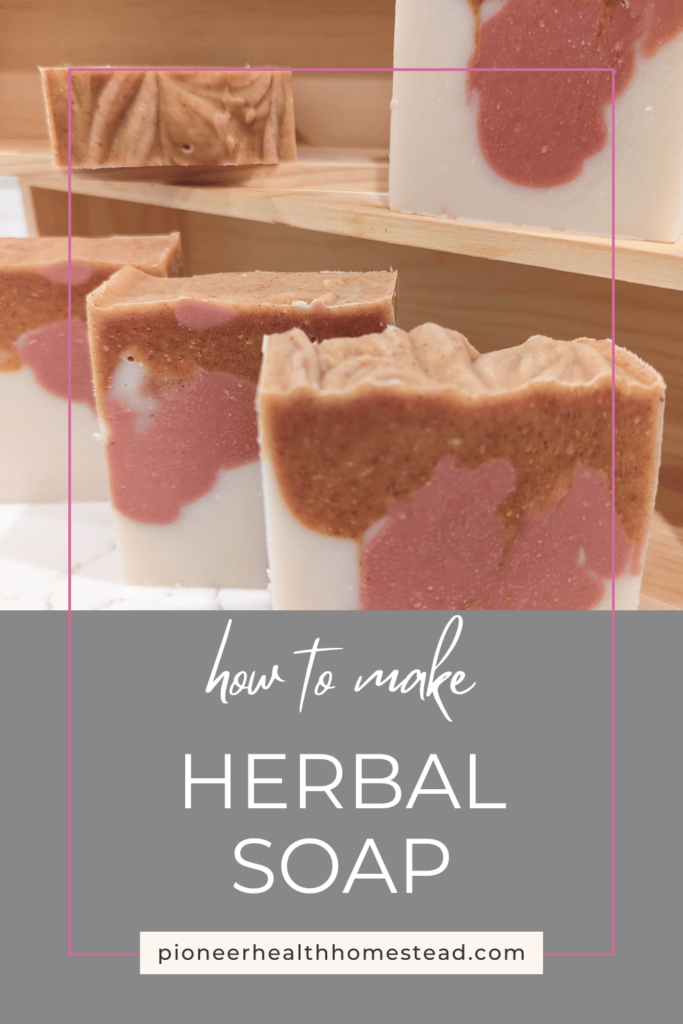
Incorporating natural soap bars into your daily routine is a simple yet effective way to embrace health benefits through your personal care products. With so many variations to choose from, you can experiment with different soaps to find the perfect match for your skin, while supporting eco-conscious practices and sustainable businesses.
Conclusion
Switching to handmade soaps comes with numerous benefits for both your skin and the environment. From their ability to hydrate and nourish the skin with natural, moisturizing ingredients to their eco-friendly production methods, natural soap bars are a superior choice for those seeking a healthier, more sustainable option.
By opting for homemade soap, you’re choosing products free from harsh chemicals, synthetic fragrances, and toxic additives, while supporting local artisans and small businesses that prioritize sustainability. The variety of options—ranging from soaps enriched with pure essential oils to those designed for specific skin types—ensures there’s a perfect soap for everyone.
Take the next step in prioritizing your skin, health, and the planet by exploring natural soap bars made with organic ingredients. Homemade soap is a simple yet impactful way to make a positive change in your self-care routine.
Make the best choice for your skin, health, and the planet by choosing homemade soap today!
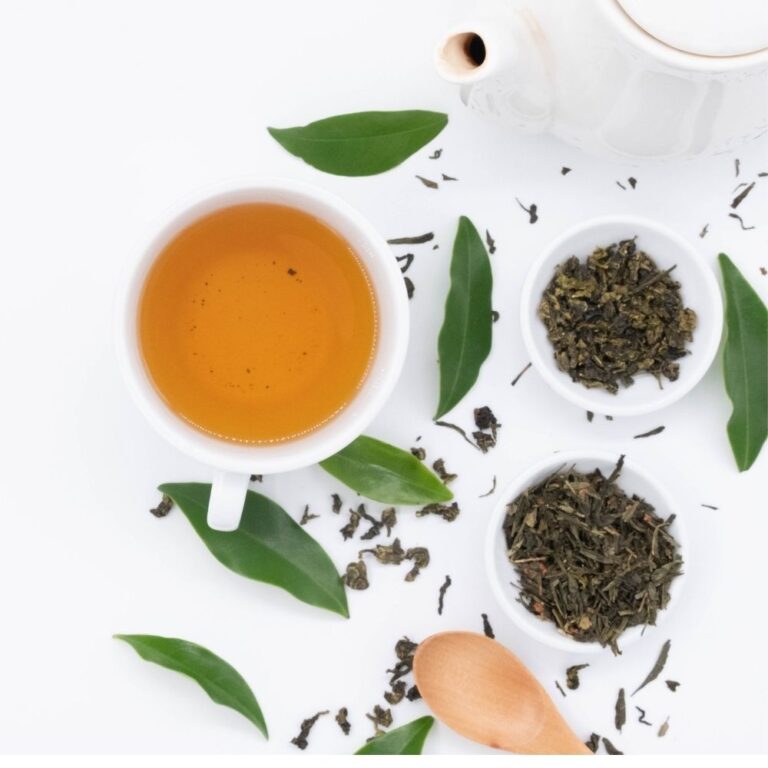
Green Tea Vs Herbal Tea: The Best Complete Tea Guide
Sharing is caring! Facebook Pinterest X Green Tea Vs Herbal Tea: The Best Complete Tea Guide Understanding the Differences Green tea vs herbal tea is a popular debate among tea lovers worldwide. Both offer unique flavors, health benefits, and caffeine content. Tea has a rich history and is enjoyed in many cultures. From Chinese green…
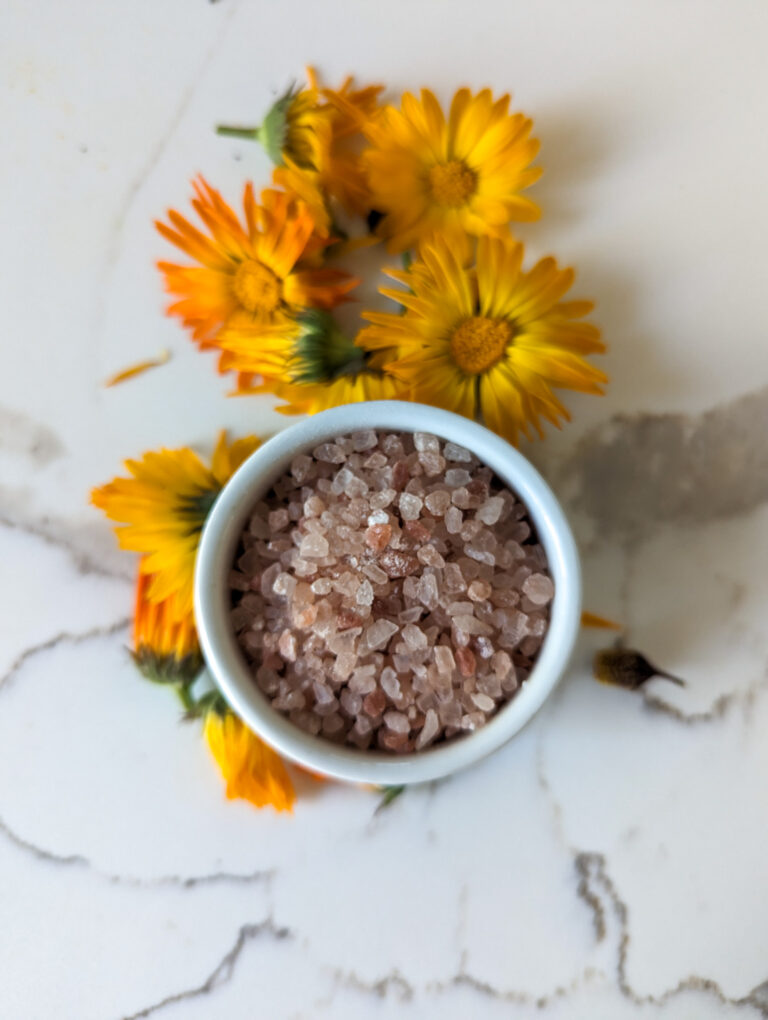
How to Make Bath Salts Without Epsom Salt: Free Recipe
How to Make Bath Salts Without Epsom Salt: Free Recipe How to Make Bath Salts Without Epsom Salt Homemade bath salts without Epsom salt are a great way to enjoy a luxurious soak. You can use natural ingredients like coarse sea salt, baking soda, and pink Himalayan salt for a soothing experience. A relaxing bath…
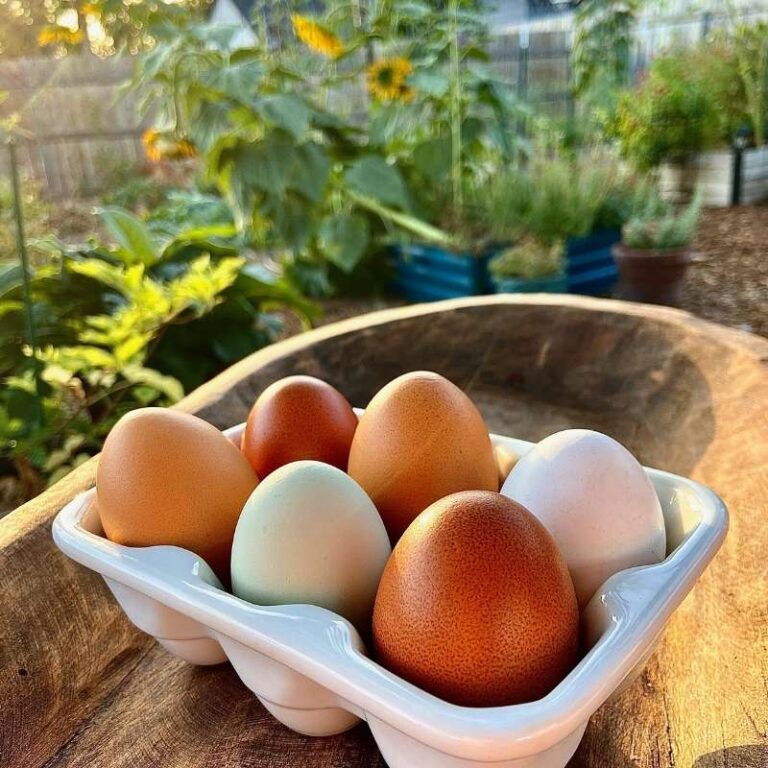
Homesteading in California: How to Start at Any Stage
Homesteading in California: How to Start at Any Stage How Homesteading in California is Possible Homesteading in California is a journey that looks different for everyone, depending on where you live in this vast and diverse state. From the deserts dotted with Joshua trees in the south, to the rugged mountain ranges in the north,…
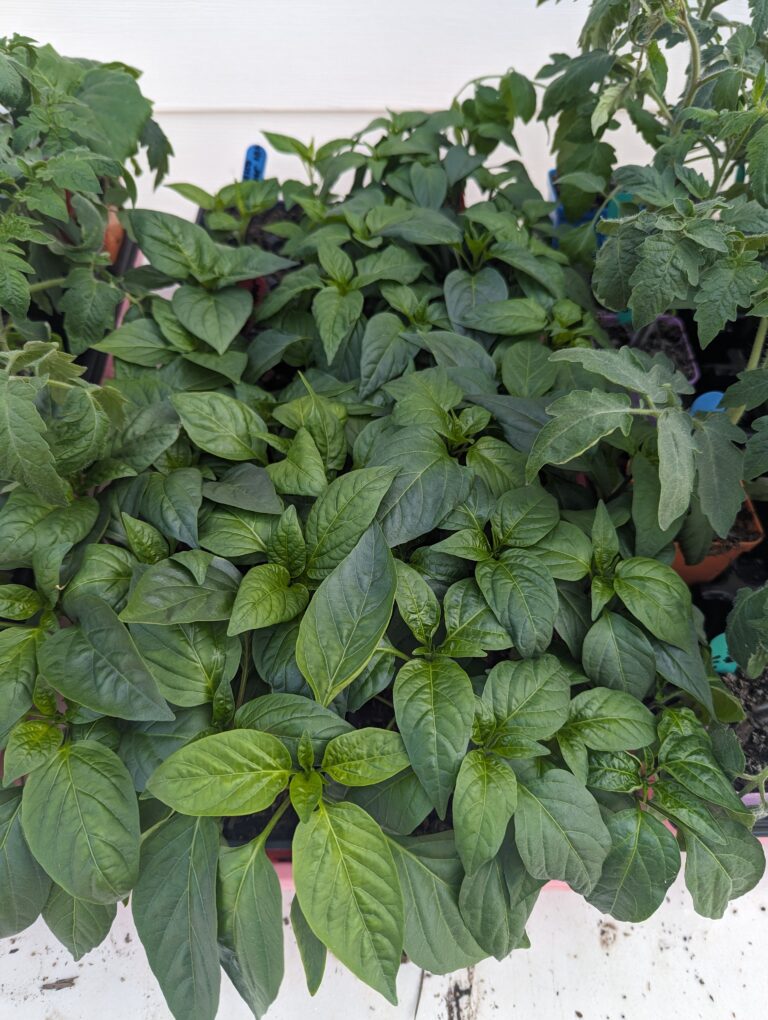
How to Make Peppers Grow Faster: Guide and Easy Tips
How to Make Peppers Grow Faster: Guide and Easy Tips How to make peppers grow faster is a common question among home gardeners seeking to maximize their growing season. Whether you’re nurturing sweet peppers, green peppers, or hot pepper plants, creating ideal conditions is essential for pepper success. The best way to achieve healthy pepper plants…
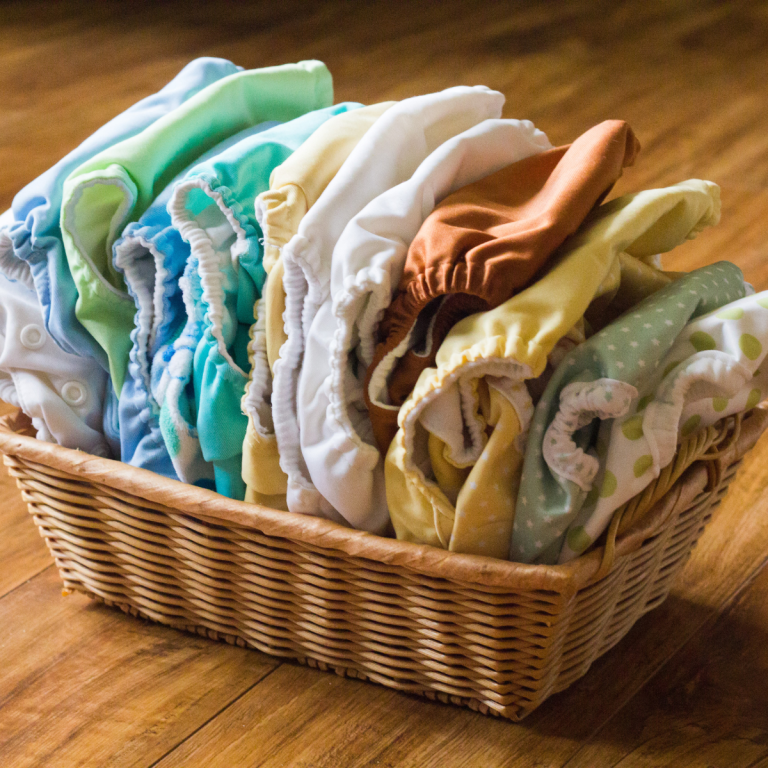
The Different Types of Cloth Diapers: Ultimate Guide
The Different Types of Cloth Diapers: Ultimate Guide The different types of cloth diapers offer a sustainable and eco-friendly alternative to disposable diapers for your baby. As a mom of five and a Registered Nurse, I’ve seen the many benefits of reusable cloth diapers firsthand. This guide will help you understand the major types of…
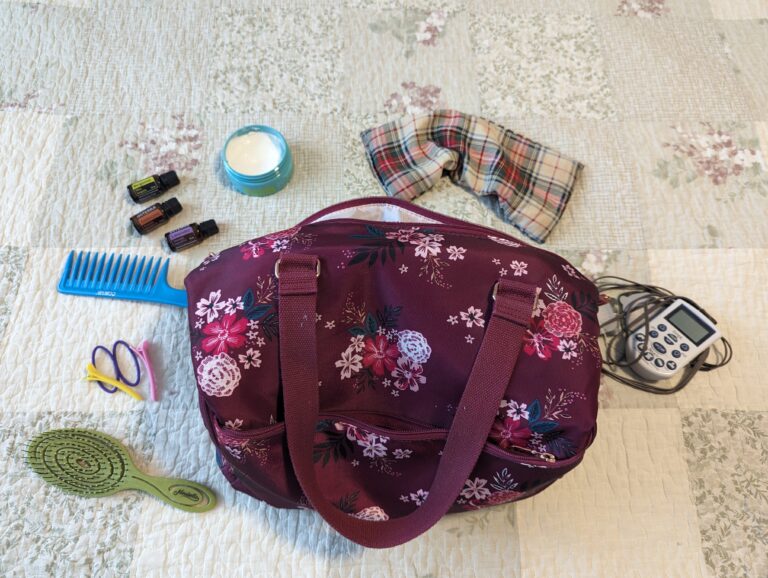
The Best Doula Bag Essentials Kit for Birth and Postpartum
The Best Doula Bag Essentials Kit for Birth and Postpartum The Best Doula Bag Essentials Kit for Birth and Postpartum A well-stocked doula bag is essential for supporting women during birth and postpartum. As a Registered Nurse, mother of five, and former Navy Hospital Corpsman, I’ve experienced the birthing world from many angles. I’ve worked…
